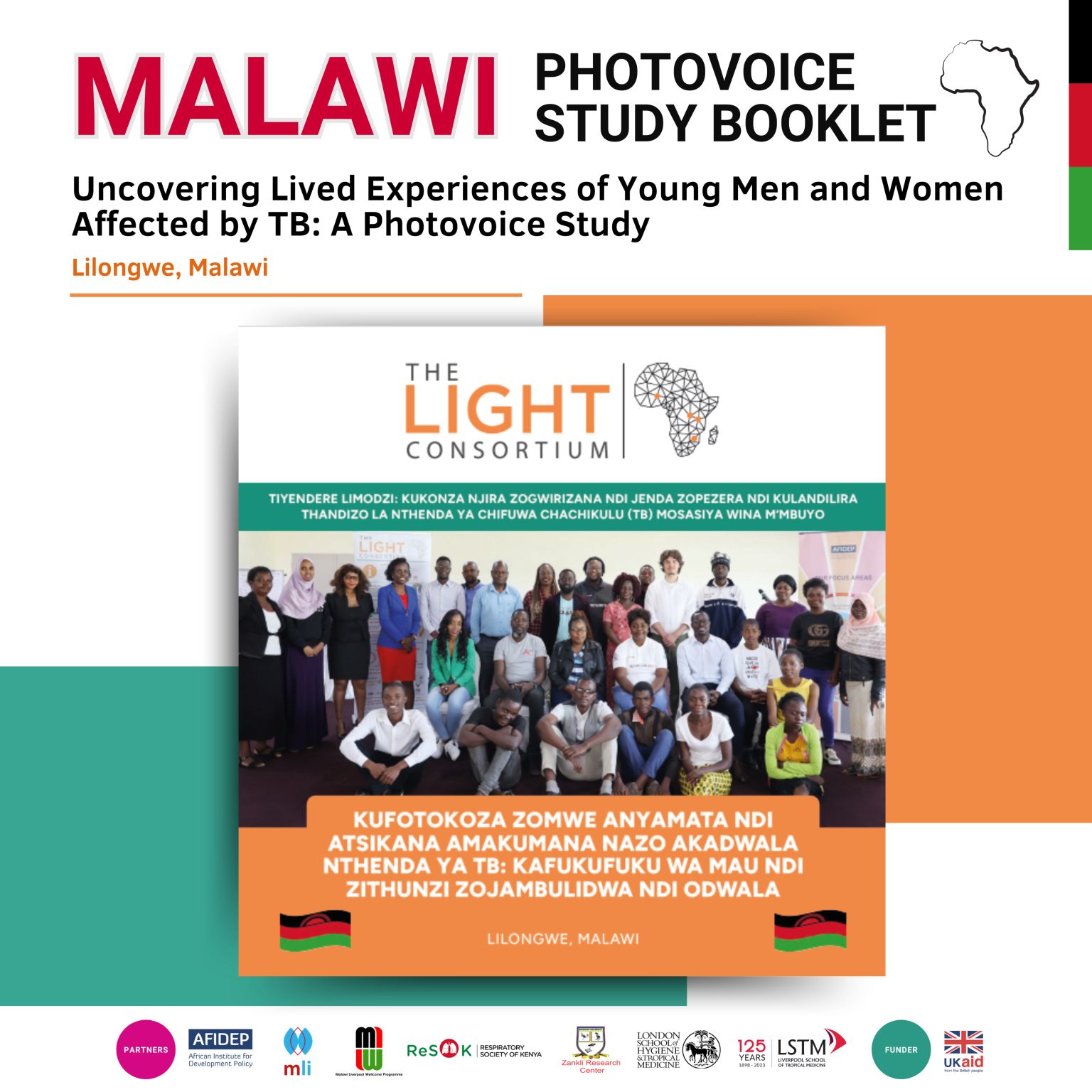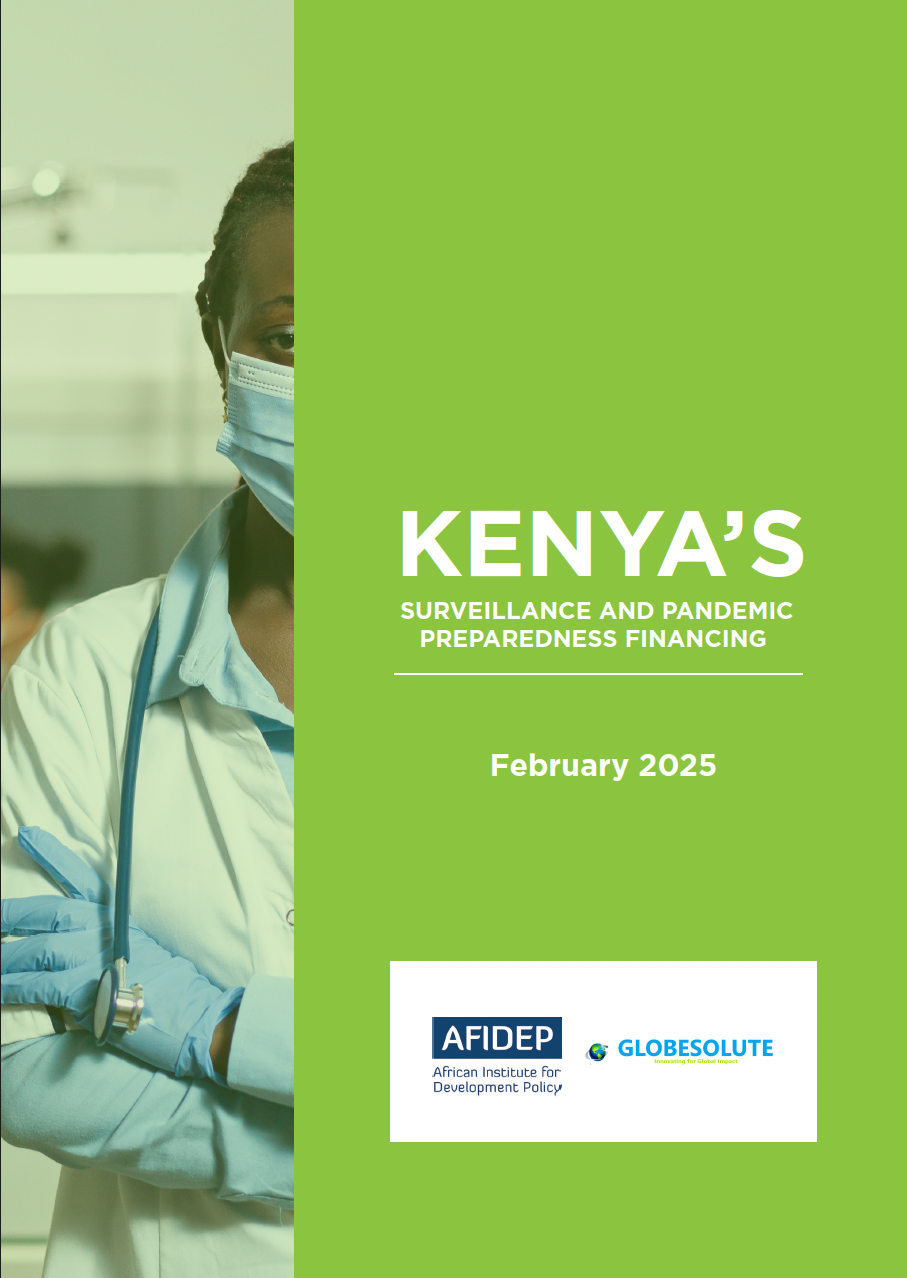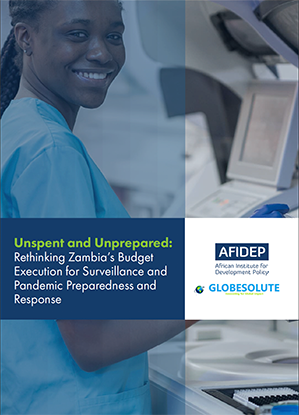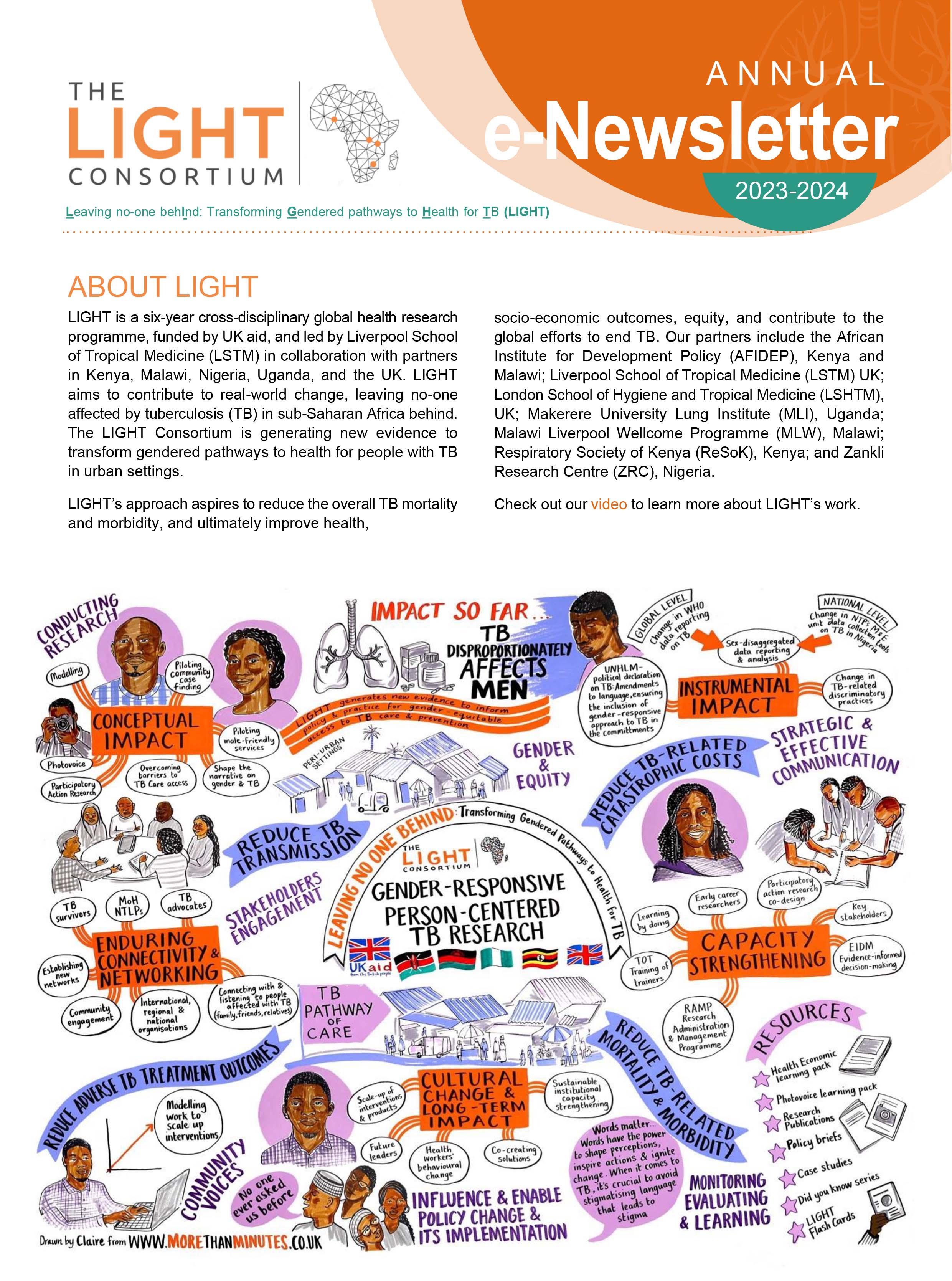Research Reports

*”Kufotokoza zomwe anyamata ndi atsikana amakumana nazo akadwala nthenda ya TB”* *“Uncovering lived experiences of young men and women affected by TB”* This latest booklet by The LIGHT Consortium demonstrates the lived experiences of young women and men in Malawi impacted by tuberculosis (TB). Young people impacted by tuberculosis (TB) documented the physical, emotional, economic, and social challenges of TB using the innovative Photovoice approach. The photos they took and stories they shared – from poor health and economic struggles to personal resilience and hope – underscore the urgency of responsive and inclusive TB programmes for young people. Young women and […]

In 2023, tuberculosis (TB) remained a major global health threat, affecting over 10 million people and causing 1.5 million deaths, with adolescents and young adults (15–24 years) in low- and middle-income countries, including Malawi, facing significant but often overlooked burdens. Despite a decline in TB incidence in Malawi, urban youth—especially young men—continue to experience high rates of infection and detection gaps, compounded by limited age- and gender-specific interventions. A participatory study using photovoice methodology in Lilongwe revealed the complex physical, economic, and psychological challenges young people face, including stigma, discrimination, and unmet societal expectations. The research emphasized the resilience of […]

The workshop on health co-benefits of climate mitigation provided important insights from experts in climate change and health on effective and ineffective ways of communicating health co-benefits of mitigation actions in Sub-Saharan Africa. The workshop also provided clear and practical pathways to a healthy, low-carbon future for the African context, giving an eye-opening view on which pathways could be more appropriate, practical and effective in climate mitigation in Africa. These insights will inform future work of the Pathfinder Initiative on capacity strengthening and could be useful for policy and programme implementation on climate mitigation interventions and communication in Africa if […]

Download the document: http://afidep.org/wp-content/uploads/2025/08/KENYA-SPP-FINANCING.pdf

“Resource Mapping in Surveillance and Pandemic Preparedness Response in Kenya,” is a report (policy brief) that examines Kenya’s pandemic preparedness efforts. It highlights the country’s vulnerability to infectious diseases and identifies significant gaps in financing, human resources, and infrastructure. The document notes that Kenya is heavily reliant on donor funding and that domestic funding for disease surveillance has sharply declined. It concludes with policy recommendations for increasing domestic financing, strengthening the healthcare workforce, and enhancing surveillance infrastructure. Download the document here: http://afidep.org/wp-content/uploads/2025/08/Resource-Mapping-SPRR-Kenya.pdf

“Unspent and Unprepared: Rethinking Zambia’s Budget Execution for Surveillance and Pandemic Preparedness and Response” is a rapid review of Zambia’s budget execution for pandemic preparedness from 2020 to 2024. The document reveals that while significant resources were mobilized, the domestic execution of these funds was weak. It identifies bottlenecks such as slow fund disbursement, rigid public financial management systems, and weak sub-national capacity, particularly for donor-financed projects. The report concludes with recommendations to strengthen the country’s ability to effectively spend resources for future outbreaks. Here’s the link to the resource: http://afidep.org/wp-content/uploads/2025/08/Unspent-and-Unprepared.pdf

This story of change is part of a series that illustrates the early results of a 2-Week Virtual LEEPS Evidence-Informed and Equity in Policymaking Training Workshop delivered to members of the Africa Research Impact Network (ARIN) who attended the training. The stories of change illustrate how the training has improved the training of researchers in higher learning institutions, grant writing, advocacy strategies, research into policy and practice processes and project/ programme design and implementation. Download:

This story of change is part of a series that illustrates the early results of a 2-Week Virtual LEEPS Evidence-Informed and Equity in Policymaking Training Workshop delivered to members of the Africa Research Impact Network (ARIN) who attended the training. The stories of change illustrate how the training has improved the training of researchers in higher learning institutions, grant writing, advocacy strategies, research into policy and practice processes and project/ programme design and implementation. Download:

This story of change is part of a series that illustrates the early results of a 2-Week Virtual LEEPS Evidence-Informed and Equity in Policymaking Training Workshop delivered to members of the Africa Research Impact Network (ARIN) who attended the training. The stories of change illustrate how the training has improved the training of researchers in higher learning institutions, grant writing, advocacy strategies, research into policy and practice processes and project/ programme design and implementation. Download:

This story of change is part of a series that illustrates the early results of a 2-Week Virtual LEEPS Evidence-Informed and Equity in Policymaking Training Workshop delivered to members of the Africa Research Impact Network (ARIN) who attended the training. The stories of change illustrate how the training has improved the training of researchers in higher learning institutions, grant writing, advocacy strategies, research into policy and practice processes and project/ programme design and implementation. Download:

This story of change is part of a series that illustrates the early results of a 2-Week Virtual LEEPS Evidence-Informed and Equity in Policymaking Training Workshop delivered to members of the Africa Research Impact Network (ARIN) who attended the training. The stories of change illustrate how the training has improved the training of researchers in higher learning institutions, grant writing, advocacy strategies, research into policy and practice processes and project/ programme design and implementation. Download:

Check out LIGHT’s Annual Newsletter 2023-2024 to explore some of the key activities and highlights the LIGHT Consortium teams have been carrying out over the past year- from research and research uptake to capacity strengtheing- with impact aspirations and achievemnets. Read or download here:

